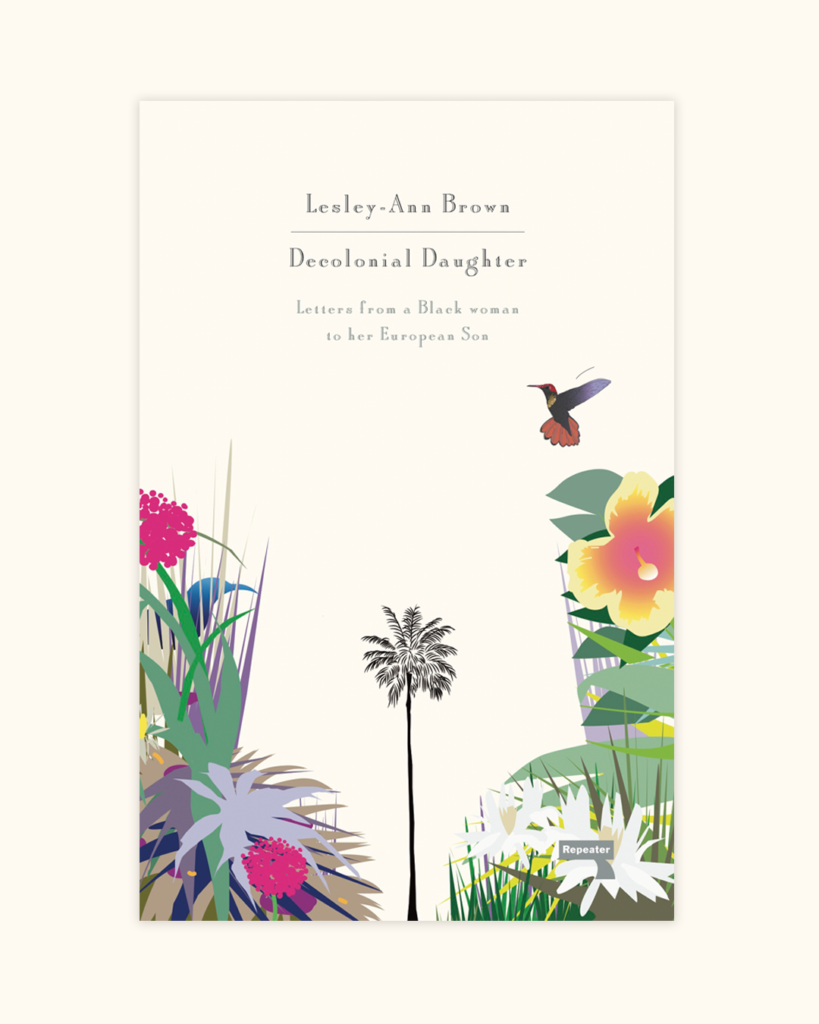Lesley-Ann Brown is a Brooklyn-born writer, educator and activist who currently lives in Copenhagen, Denmark. She has written for Vibe and The Source, and is the founder of Bandit Queen Press and the critically-acclaimed blackgirlonmars blog.
Decolonial Daughter is the memoir of a bold, independent black woman seeking freedom across different worlds marked by the heavy weight of history and empire – from Trinidad in the 1980s, to Brooklyn in the 1990s, to Europe today. As Brown writes these letters to her son, she faces the ghosts of history which still haunt our time.

Culturego Magazine: What/ who was your inspiration for this book ?
Lesley-Ann Brown: My son. I wanted to give him something that could help him better navigate the world and in turn, I wanted to gift Europe, where he was born, with an archive that presented the other side of the story. I felt that as a mother and human being, it was the best I could offer.
Has this book and your writing as a poet, provided liberation/ freedom for you ?
Yes. It has been and continues a very humbling experience to feel the power of the written/spoken word. I often say my creativity is my spirituality, and it has opened doors for me. I have traveled all over the world and continue to be invited to meet and convene with my fellow human beings globally, in order to figure out ways in which we could improve our relationships with each other, ourselves and the earth.
What does freedom in post-colonial societies look like, as it pertains to the Arts & culture ?
I always say that we will always be in a state of “post-colonialism” because they came, they saw and they, to some extent conquered. This is where I think the concept of “creolization” comes in handy. We have to find ways, – and many of us do – to combine the best of all the cultures, especially in a way that challenges white supremacy. We have the best of all cultures at our fingertips,
let’s reimagine new worlds and live in them, as opposed to only reproducing what is handed down to us.
“Identity” continues to be a hot topic in societies, post-colonial but not exclusively. In your opinion, why is that ?
Identity politics started when racialization took a hold on our world. The moment one sector of society decided to racialize the world, it became all about identity. But now fast forward, and the way that identity politics is often spoken about today is not necessarily the way in which many proponents of the idea meant.
I write a bit about the Black Lesbian collective The Combahee Collective in my book and what they had to say about identity politics is quite powerful. To paraphrase, it would be along the lines of “until the Black woman is free, none of us are free”. This is powerful because as the Trinidadian activist Gillian Goddard once said to me, “many of us come from poor Black women, but we spend our entire lives running from this past, taking on accents, material goods, even mannerisms of cultures that give us the illusion that this is not us.”
We have to understand the connection between the creation of poor, vulnerable communities and the state that the earth is in today.
Racism, colorism, sexism and the abuse of our earth are all related. So using our identity as Black women, coming together on the platform of both greatness and at times, exploitation, can for sure be a very valuable tool in turning the current tides of isms that are plaguing and polluting our planet and souls.


recent articles
A CONVERSATION ART
Light movements.
FILM
ttff/ 2021 is here and watch meh!